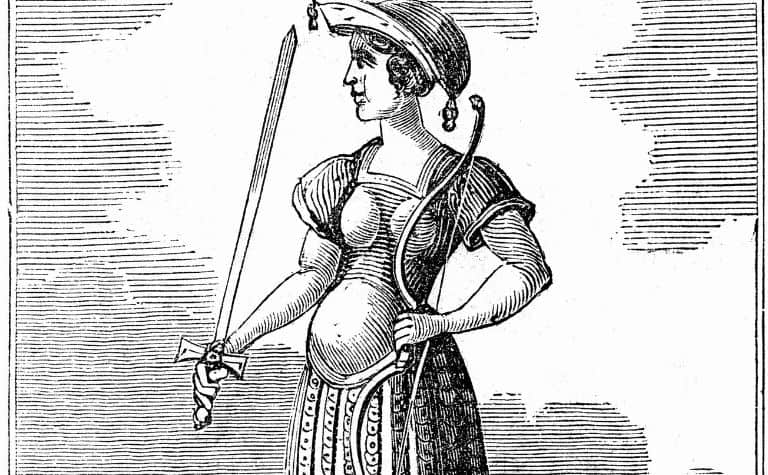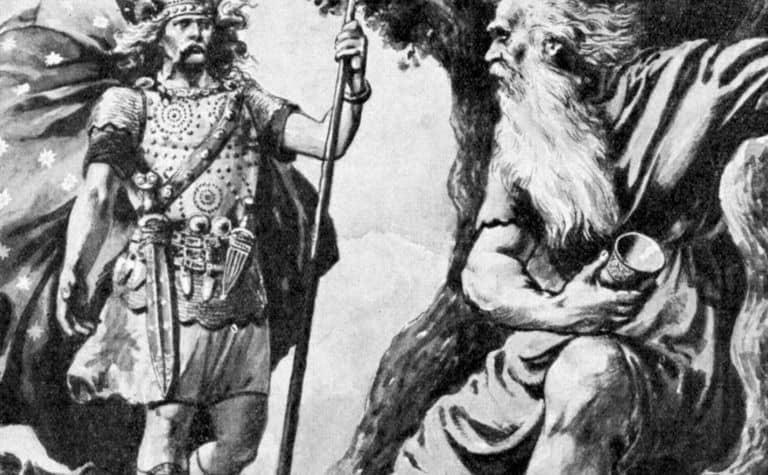Norse mythology has fascinated readers for centuries. Recent pop-culture stories found in comic books, movies, and television shows include versions of characters based on Norse mythology.
This has made many people curious about the nature of Norse gods. One question many people have is whether Norse gods can die.
Norse gods age and die. Norse gods have certain super-human abilities, but they aren’t immortal.
Eating the goddess Idun’s fruit could stave off the aging process when Loki wasn’t interfering.
Ragnarok, the apocalyptic final battle in Norse mythology, results in the death of gods like Odin, Thor, and Loki.
Are Norse gods immortal? What Norse gods died? How did they die? Are gods in Greek mythology mortal or immortal? Keep reading to learn more.

Are Norse gods immortal?
Gods in Norse mythology grow old just like humans do. However, Idun, the goddess of immortality, grew apples that reversed the aging process.
When the gods ate Idun’s apples, it would stave off the aging process. (Also see Is Valhalla Heaven or Hell?)
The fruit regenerated the gods’ youthfulness and prevented them from growing old. One source of Norse mythology states,
“Bragi’s wife is Idun; in her casket she guards the apples which the gods have to eat if they are aging so that they can all become young again; this is how it will go until Ragnarok.” [1]
Glyfaginning 25
Norse scholars debate the identity of the food. “Apple” is a common English translation for the word, but in other contexts it’s translated as fruit or nuts.
The point of the story isn’t so much the identity of the food, but what it could do for the gods. (Also see 10 Goddesses in Norse Mythology That You Need to Know)
Drama ensues over Idun’s fruit. In one Norse myth, Loki tricked Idun, who was kidnapped by the Norse giant Thjazi.
When the gods lost access to Idun and her fruit, they began to feel old and frail because the aging process restarted.
When confronted and threatened, Loki admitted to helping Thjazi kidnap Idun and the gods saved her. In this way, the gods could continue regenerating their youth. (Also see The Giants of Norse Mythology)
What Norse gods died? How did they die?
Many Norse gods died in the mythological world of ancient Scandinavia. The more prominent the character, the more significant the death.
Baldur and Odin are two important deaths. (Also see This Is Why Odin Sacrificed His Eye)
How did Baldur die?
The fate of Baldur is death: one of the most notable tales involving the death of a god was the death of Baldur, son of Odin.
Baldur was one of the most beloved gods in the Norse pantheon.
People loved him for his extraordinarily benevolent and courage. Sadly, one day Baldur began to have premonitions of his own terrible fate.
The gods investigated Baldur’s dreams: the gods discussed Baldur’s dreams and concluded that his fate was inevitable.
Baldur’s mother, Frigg, made oaths with every being in the cosmos not to harm her son and then returned to Asgard to share the good news that he would live.
To prove this was true, the gods pelted Baldur with many objects, all of which left him unharmed. (Also see 25 Norse Gods to Know)
Loki tricks Frigg and seals Baldur’s fate: unfortunately, Loki found a loophole in Frigg’s plan. Frigg had overlooked making an oath with mistletoe, so the trickster god made a spear out of the plant.
Loki struck Baldur with the mistletoe spear, and the son of Odin died immediately.
Attempts to save Baldur proved futile: Baldur’s brother Hermod went to Hel and tried to revive him. Loki interfered with Hermod’s efforts and Baldur was unable to find a second life.
All people throughout the land mourned Baldur and creatures of all Nine Worlds attended his funeral. (Also see Why Did Odin Stop At 9 Realms?)
Other deaths at Ragnorak
Ragnarok is an important event in Norse mythology. The gods anticipated Ragnarok and the final battle that would occur there.
The gods prepared to fight valiantly in the final battle when the cosmos, as they knew it, would end.
One significant death at Ragnarok is Odin. According to Norse sources, Odin and the wolf Fenrir fight tirelessly, but in the end Fenrir reigns victorious.
Vidar, Odin’s son, avenges his father’s death when he thrusts his sword into Fenrir’s throat. (Also see Valhalla vs Asgard: What’s the Difference?)
Loki and others die at Ragnarok. Several other battles at Ragnarok end similarly. Loki and Heimdall fight to the death, as do the god Tyr and the wolf Garm. Freyr and Surtr kill each other as well.
Thor succeeds in killing his enemy Jormungand, but the venom of the snake kills him anyway. (Also see Who Can Lift Thor’s Hammer?)
There are conflicting reports of Ragnarok’s fate. Two sources for Norse mythology don’t agree on its outcome:
- One states that Ragnarok is the end of everything and no one survives. The cosmos returns to the void that it was before the gods created Asgard.
- Others believed that after Ragnarok was born again. They believed that a few gods remained and would rebuild the world anew.

Are gods in Greek mythology mortal or immortal?
Norse and Greek mythology share many similarities, yet there are important differences between the worldviews as well.
Unlike Norse gods, Greek gods and goddesses were immortal. (Also see Norse Gods vs Greek Gods: What’s the Difference?)
Similar to Norse mythology, Greek gods had their own food, known as nectar and ambrosia, which were said to grant immortality to mortals who consumed them, but it didn’t affect the gods’ inherent immortality.
In fact, when Demeter’s daughter Persephone was abducted, she was so distraught that she didn’t eat for days. However, her failure to consume the ambrosia didn’t affect her immortality.
Greek mythology stated that a substance called ichor ran through the gods’ veins instead of blood, which came from the ambrosia and the nectar they consumed.
Sometimes, the children born from a god and a mortal could also have ichor instead of blood. These children were known as demigods and usually had powers that other mortals lacked.
Unlike Norse mythology, Greek gods couldn’t be killed. They could be weakened or cast into the depths of Tartarus, but they were never truly gone.
In fact, one prominent myth states that Kronos dismembered Ouranos and scattered the pieces of his corpse.
Ouranos was never able to regain his physical form, but his spirit was still alive. Zagreus, son of Zeus, was also torn apart, but Zeus was able to recover his heart and revive him into the new god Dionysus.
One exception to this rule is Pan. In one ancient writing, a Greek historian named Plutarch claims that Pan’s death had been announced to the world.
However, this is only one story, and the details of the announcement are blurry. It is unknown if Pan actually died or if it was an unreliable source.
Final Thoughts
While the mythologies of many people groups feature immortal deities, Norse mythology isn’t one of them. Norse gods were able to age and die.
References:
[1] Source
[2] Source
[3] Source
[4] Source
[5] Source
[6] Source
[7] Source
[8] Source
[9] Source
[10] Source
[11] Source
[12] Source
